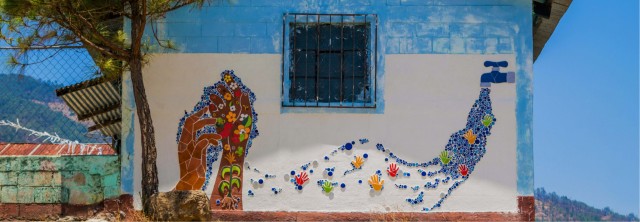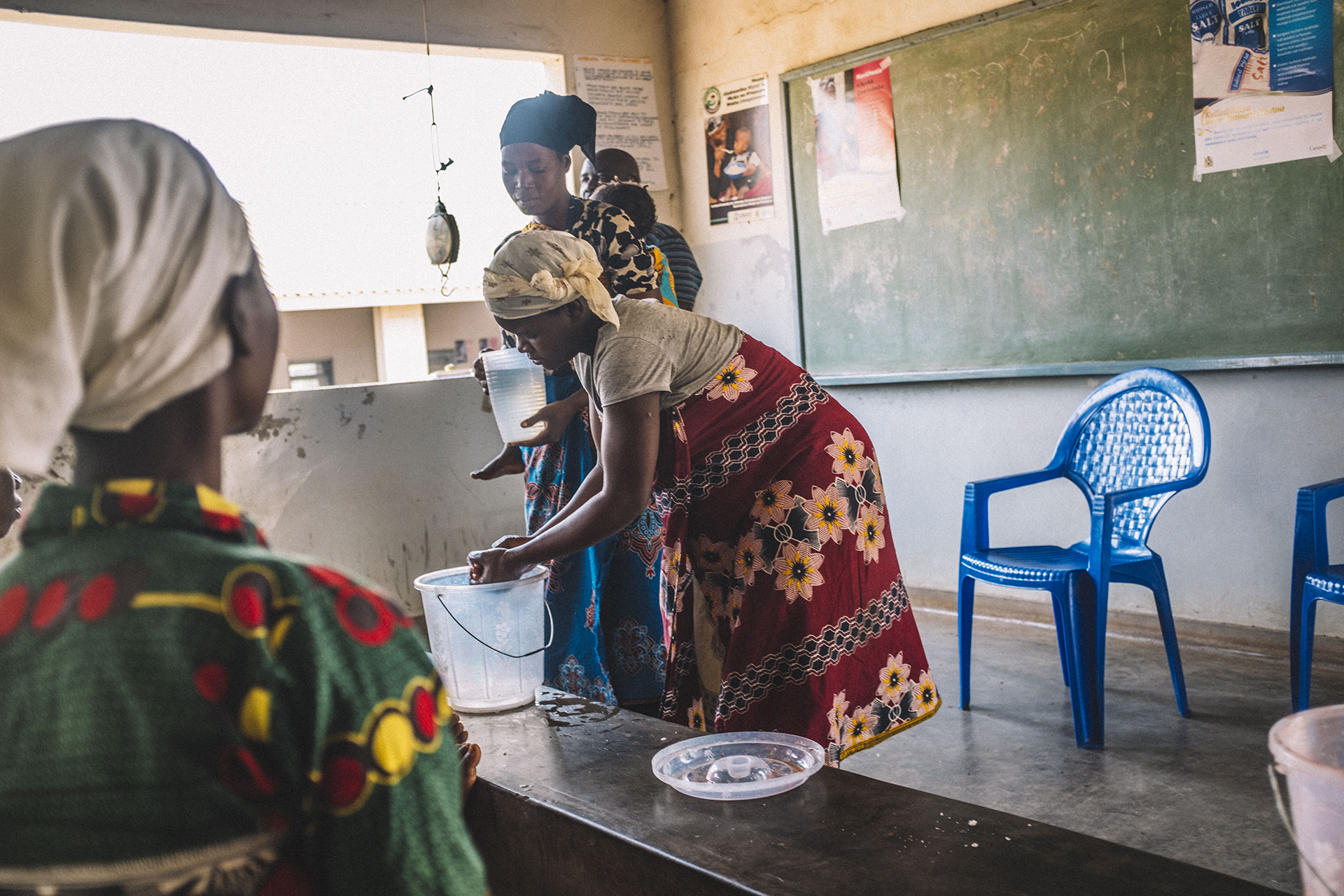Social Art for Behaviour Change: One Drop’s unique approach for WASH sector

One Drop’s unique Social Art for Behaviour Change™ (SABC) approach integrates a systematic and evidence-based process that takes into consideration behavioural determinants (contextual, psychosocial and technological) as well as cultural and artistic references, to create locally inspired social art programs. These programs promote behaviour change towards healthy practices around Water, Sanitation and Hygiene (WASH) and they empower the community to take ownership of projects over time, ensuring their sustainability. The SABC approach stands at the heart of One Drop’s A.B.C for Sustainability™ model, which includes three components: Access, Behaviour Change, and Capital.
THINK OUT OF THE BOX
With its socio-ecological perspective, the SABC approach is rooted in One Drop’s theory of change. It privileges the participatory design and implementation of an action plan adapted to target groups, influencers, desired behaviours, and local context. The SABC action plan aims to achieve individual, interpersonal, community and societal commitment, to foster healthy and sustainable WASH practices.
To achieve these objectives, it’s key to include community leaders as agents of change throughout the process, since they belong to both the priority groups and the influencers.
Collaboration and innovation are essential elements for the interventions to effectively contribute to the sustainability of the adopted WASH behaviours. The SABC approach invites stakeholders to think, learn and act out of the box, and draws on a diversity of sources, such as popular education, edutainment, social circus (especially Cirque du Monde, by Cirque du Soleil), Social Art, Social Behaviour Change Communication, and the science of behaviour change.
SABC INTERVENTIONS
SABC interventions involve a participatory creation process that seeks to Inspire, Activate and Sustain the practice of desired behaviours, as well as to create Social Art products.
• Participatory process: Social artists, key actors, target groups, and influencers connect through creative, fun, educational experiences. For example: representations of everyday situations and inadequate WASH practices experienced by the target groups; spaces for community debate and dialogue; co-construction of joint solutions, etc.
• Products: These are the result of the interventions, which draw on local culture and are undertaken in collaboration with the community. These products include shows & debates, reflective mosaics, works of docu-fiction, open innovation workshop sheets, the outline of training workshops on popular education techniques, and entertaining A•B•C integration kits.
Read more about our A•B•C for Sustainability model
DESIRED BEHAVIOURS
Healthy and sustainable WASH practices frequently targeted by SABC interventions:
• Handwashing with soap and water at key moments
• Safe water transportation and storage
• Water treatment
• Adequate latrine use and maintenance
• Payment of water service tariffs
TOOLS AND KEY CONCEPTS
Action plan: Focused on strengthening local Social Art, this plan includes several SABC interventions that are the cornerstone of component B from the A•B•C for Sustainability model. Component B, Behaviour Change, works in synergy with components A and C, leading to more committed target groups and influencers and contributing to the sustainability of the projects’ results.
• Desired behaviours: Healthy WASH practices expected to become habitual within the communities.
• Influencers: A group of individuals who can accelerate the promotion, adoption, and maintenance of the desired behaviours. They are usually community, organizational, institutional, religious, or cultural leaders.
• Inspire, Activate and Sustain: A set of interrelated groups of SABC interventions at different levels, according to the intervention’s objective.
• SABC interventions: activities that seek to Inspire, Activate and Sustain the adoption of the desired behaviours.
• Target group: group of individuals with a specific profile who will experience behaviour change through SABC interventions.
Behaviour Change is a process that occurs in stages; SABC activities are implemented throughout, in the aim of sustaining positive habits.
INSPIRE
• Inform a large group (often the entire community)
• Challenge the group
• Build community commitment to foster healthier behaviours
EXAMPLES
• Artistic performances (shows, film, radio theatre, etc.) & debates about transportation and storage of safe drinking water
ACTIVATE
Reach a selected target group
• Reinforce its understanding, capacities and skills
• Guide their concrete actions to:
1. Reduce or transform barriers to adopting the desired behaviour
2. Enhance or improve drivers to adopting the desired behaviour
3. Adopt the desired behaviours
EXAMPLES
• Artistic and educational workshops on handwashing with soap and water at key times, held in schools or health centres
• Collaborative creation of a reflective mosaic about the proper use of school latrines
• Training and replication for/by agents of change
SUSTAIN
Produce SABC tools that can be used long-term
• Promote best practices among target groups and key community influencers
• Strengthen interventions to better inspire and activate
• Document processes, outcomes & results and emerging knowledge
EXAMPLES
• Docu-fiction works on soap-making and income-generating activities
• “Nudging” (visual and spatial design promoting desired behaviour) around water stations, to promote handwashing at key times
